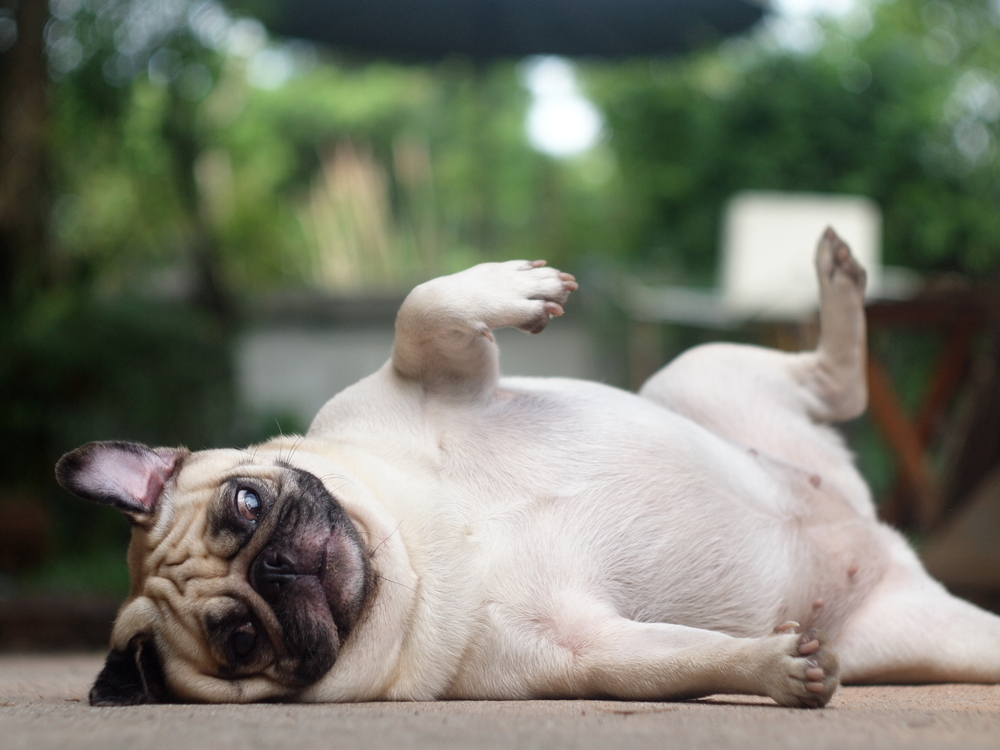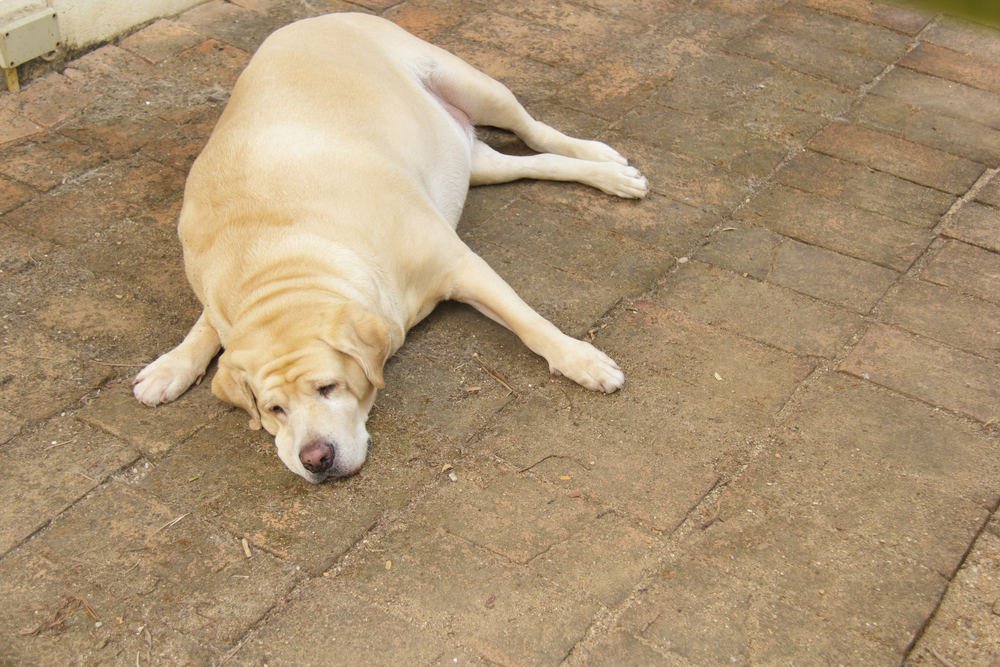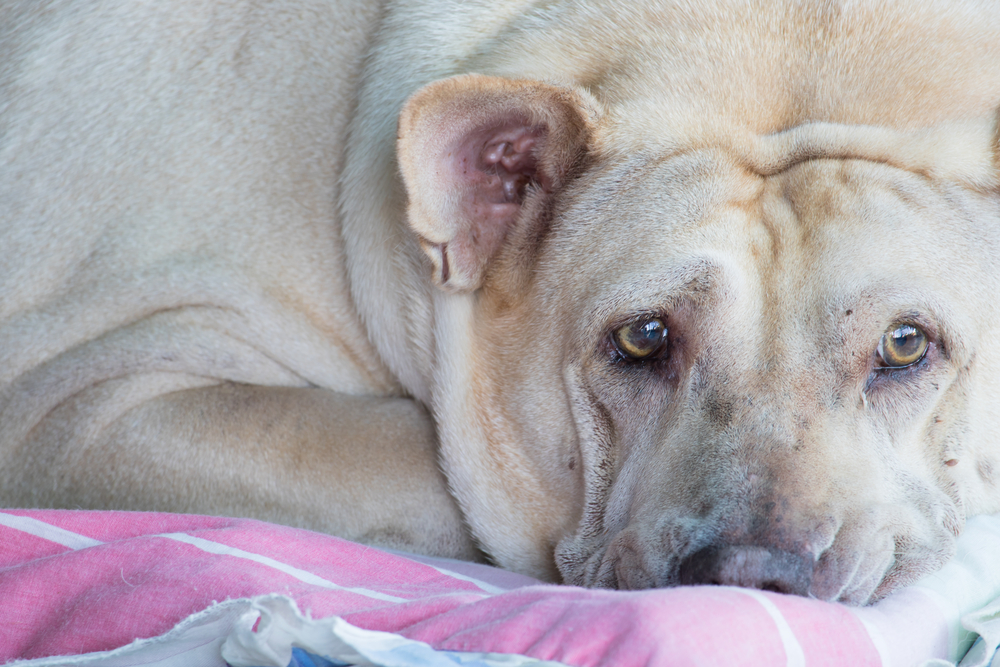Is your pet at risk of becoming obese? Last year, it was estimated that over half of all U.S. pets (cats and dogs) were obese. It’s a growing problem that leads to an early death for many of these beloved fur babies. We are literally loving our pets into an early grave by overfeeding them.
It can be difficult to separate food from love- for ourselves, let alone our pets, who believe food, playtime and attention are the three greatest things in the world. But fat pets suffer more and live shorter lives.

“Pudgy pooches and fat cats are now the norm,’ says Dr. Ernie Ward, founder and president of APOP. “This is the first generation of pets that will not live as long as their parents. Even worse, the majority of today’s overweight pets will endure painful and expensive medical conditions – all of which can be avoided.
This epidemic is needlessly costing pet owners tens of millions of dollars in unnecessary medical bills, not to mention crippling arthritis, challenges of diabetes, and increased risk of cancer these pets endure,” says Ward. “We’re loving our pets to an early – and painful – death.” (Source: Mercola).
What can we do to change this dangerous trend? The first step toward change is always education. In order to help end pet obesity, we have to be aware of the risk factors.
Four Risk Factors of Pet Obesity
- Overweight pet parents. The simple truth is that if you struggle with your own weight, your pooch is much more likely to become overweight as well. Most pet parents find it difficult not to feed their dogs when they themselves eat. Sharing a bite here and there and frequent meals and snacks can really add up, especially if your pup isn’t very active. Your eating habits become your dog’s eating habits.
- Breed. Some dog breeds are simply more prone to obesity. The labrador retriever is by far the most commonly obese dog breed. Labs love to eat and nap, and will easily consume far more calories than their bodies need at every meal if given the chance. Other breeds that are prone to obesity are cocker spaniels, dachshunds, rottweilers, golden retrievers, shelties and dalmatians.
- Free feeding. Ask just about any dog trainer and they’ll tell you free feeding your dog is a big NO-NO. Leaving a bowl full of food out for your dog 24 hours a day allows your dog to eat whenever he’s bored, lonely, stressed, or hungry. Eating feels good, so anytime he needs a little comfort, he’ll turn to the food bowl if it’s available. Plus, dogs really don’t have very good appetite control. Their instinct is to eat when food is available to stock up on calories for the times when food is scarce. The problem is, today’s domestic house dog never experiences food scarcity, so the pounds just pack on day after day.
- Overfeeding. Even if you do feed your dog meals on a set schedule instead of free feeding, the truth is that most pet parents have no idea how many calories per day their dogs should eat. They eyeball a handful of food or take a guess at how much each dog should get each day. And if you have more than one dog, it can be difficult to make sure each dog is eating his own portion and not sneaking from the other dogs’ bowls (there’s always one piggy and one who doesn’t mind sharing in multi-dog households). Calculate your dog’s daily caloric intake based on his ideal weight for his breed using this formula: Daily calories = Ideal Body Weight in kilograms x 30 + 70 and be sure to measure his food at every mealtime.
How to Help an Overweight Dog
A recent study found that dogs fed to an ideal body condition lived 1.8 years longer than their overweight littermates. Did you catch that? A dog at his ideal weight will live an average of almost two years longer! Plus, he won’t suffer from problems associated with obesity like:
- Joint problems
- Pain
- Diabetes
- Arthritis
- Heart disease
- High blood pressure
- Difficulty breathing
- Heat intolerance
- Liver dysfunction
- Digestive issues
- Poor immune response
- Increased risk of cancer
If your dog is overweight, he’ll need to eat less and move more. Calculate his daily caloric intake based on his ideal weight and adjust his portion sizes down a little each week until you’ve reached the recommended daily portion size. This will help you both adjust to changes a little more easily by making small adjustments over time.

He’ll also need to move more. This means more walks and more playtime. Move his food bowl up or downstairs so he has to work a little for his supper. Try out a few new toys and offer an extra game of fetch every day. Any movement, no matter how small, helps at first. Moving more will stimulate his metabolism and get him on track to a healthier weight.
Special Considerations for Obese Dogs
Some dogs have been so overweight for so long, their bodies are in a truly sad state. These dogs not only need to lose weight, they need to get healthy. Obesity not only makes it harder to move and breathe, but it also depletes your dog’s body of essential nutrients and decreases the overall function of every organ system. An overweight dog may experience allergies, overheating, hot spots, sleeping problems, incontinence, sickness, and new sensitivities. This is your dog’s body slowly failing to function as nature intended.
Dogs in crisis need medical support from a trained veterinarian.

If you’re currently feeding your dog a grain-based pet food, consider switching him to a raw or meat-based diet to help limit weight gain. Change is hard, especially when it comes to eating habits and our dogs. Learning to say “no” is difficult, but it’s in the best interest of your dog. Remember, a healthy dog lives a longer, happier life.
To recap:
- Feed your dog on a schedule, don’t free feed
- Don’t share your meals and snacks
- Know how much food he should get and measure his meals
- Switch to a grain-free food
- Get your dog to move more
 Toledo, United States.
Toledo, United States.